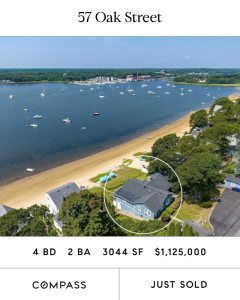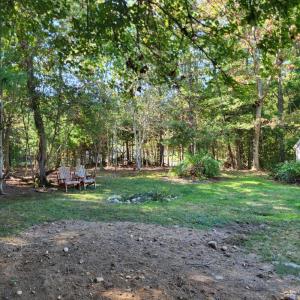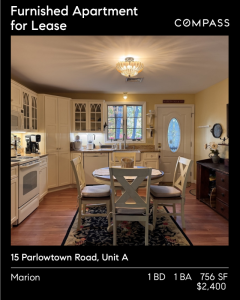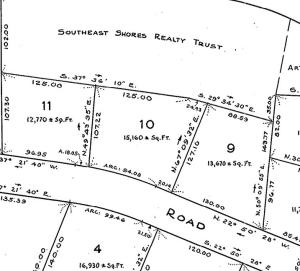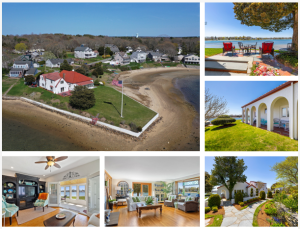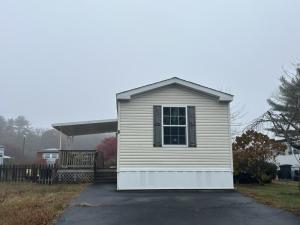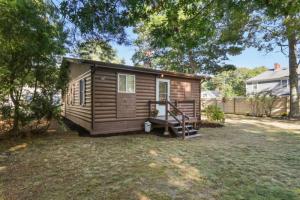Water meter debate heats up at Marion Town Meeting, discussion postponed to May
MARION — A citizens petition to potentially allow the installation of secondary outdoor water meters in Marion sparked a passionate debate at Fall Town Meeting on Monday, Nov. 24 — ultimately leading to the discussion being postponed until Spring Town Meeting in May.
Created by Marion resident and Planning Board Chair Andrew Daniel, the citizens petition would allow residents to install secondary outdoor water meters on their property if approved.
With Marion’s current singer meter water system, sewer fees are included in outdoor water usage, despite the fact that outdoor water is not treated at the sewage treatment facility.
The petition proposes that property owners that choose to install a secondary outdoor meter would receive an annual separate water bill that solely charges for outdoor water without added sewer fees.
Daniel stated that he spoke with “a lot of people with really horrific stories” of being burdened by high sewer rates and unable to continue to take care of their outdoor land, including lawns and gardens.
If approved, the secondary outdoor meter would be installed at the owner’s expense. A licensed plumber hired by the property owner would work with the Water Department to ensure proper placement and installation of a secondary meter.
John Hoagland, a member of the Marion Select Board and Water and Sewer Commissioners, gave a presentation outlining concerns that the board has with the potential financial impacts of the citizens petition.
With the town already saddled with over $25 million of sewer-related debt, some officials fear that the implementation of secondary water meters would decrease sewer revenue that is used to pay off the debt each year.
The “worst case scenario” predicted by town officials would be an estimated revenue loss of $477,000 each year. This estimate is based on data collected from 351 Marion water accounts and their respective summer irrigation usage.
If sewer revenue were to decrease due to the implementation of outdoor meters, officials speculate that this loss in revenue might have to be made up by increasing rates overall.
On behalf of the Sewer Commissioners, Hoagland made a motion to indefinitely postpone the citizens petition, recommending that the discussion be continued outside of Fall Town Meeting in collaboration with the Water and Sewer Regulations Review Committee.
Several residents expressed their support for the citizens petition, discussing their own experiences struggling with high sewer rates impacting their outdoor water usage.
Resident Shelley Visinho said she felt that “indefinitely postponing this is going to hurt the residents” and she believes that residents should have the choice to install a secondary meter.
She stated that due to the high cost of sewer, she can no longer use her irrigation system.
“I feel that we as residents should have some kind of a choice to help us defer the costs to our financial situations so that we can live in this town without having to have exorbitant and crazy water and sewer bills,” said Visinho.
Resident Tucker Burr said that he spent $7,500 to install a well on his property to sidestep the “outrageously expensive” costs of irrigating for a landscaping project.
“The sewer rates are twice as much as the water rates, and now it’s like this impossible to ignore the thing,” said Burr.
He said the town charging sewer fees for outdoor water “really is a fairness thing — right and wrong. … You can’t charge people for a service you’re not providing.”
Resident Shaun Walsh urged meeting attendees to vote no on the citizens petition.
Walsh stated that he took issue with the fact that the water rates for the outdoor meter would be the same as the rate for the property’s primary meter.
He referenced the town of Newton as an example, stating that Newton’s secondary outdoor water meters are billed at the highest rate in order to offset loss of revenue.
He also emphasized his hesitation due to the Financial Committee being unable to review citizens petitions and give a recommendation on the proposal.
“It would be really difficult to know what the fiscal impact would be to those who can’t afford to hire a plumber and put in a second meter,” said Walsh.
Resident Dina Nichols also expressed concern about the unknown potential financial impact that the outdoor water meters might have, stating that “the reality is, the facts aren’t here.”
“We’re talking about something that’s going to impact [over] 1,700 households without any data,” said Nichols.
Rather than indefinitely postponing the vote on the citizens petition, a motion was made to postpone the discussion until Spring Town Meeting in May. A two-thirds majority approved to postpone the discussion until May in a voice vote.
Prior to Town Meeting in May, Daniel said he "absolutely" plans to address the comments and concerns expressed by residents.
“I’ll absolutely do some more homework,” he said, adding that the Financial Committee will also research fiscal numbers from other towns who adopted similar secondary water meter policies and see what their monetary losses and gains were.
“It’s the right and fair thing to do,” said Daniel. “...We’ll come back to it at the annual [Town Meeting] and hopefully make it work.”


















